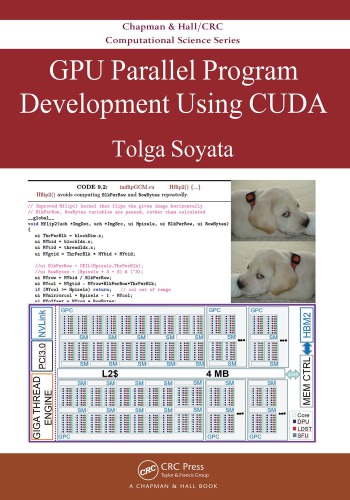

Most ebook files are in PDF format, so you can easily read them using various software such as Foxit Reader or directly on the Google Chrome browser.
Some ebook files are released by publishers in other formats such as .awz, .mobi, .epub, .fb2, etc. You may need to install specific software to read these formats on mobile/PC, such as Calibre.
Please read the tutorial at this link. https://ebooknice.com/page/post?id=faq
We offer FREE conversion to the popular formats you request; however, this may take some time. Therefore, right after payment, please email us, and we will try to provide the service as quickly as possible.
For some exceptional file formats or broken links (if any), please refrain from opening any disputes. Instead, email us first, and we will try to assist within a maximum of 6 hours.
EbookNice Team

Status:
Available4.4
28 reviewsThe book consists of three separate parts; it starts by explaining parallelism using CPU multi-threading in Part I. A few simple programs are used to demonstrate the concept of dividing a large task into multiple parallel sub-tasks and mapping them to CPU threads. Multiple ways of parallelizing the same task are analyzed and their pros/cons are studied in terms of both core and memory operation.
Part II of the book introduces GPU massive parallelism. The same programs are parallelized on multiple Nvidia GPU platforms and the same performance analysis is repeated. Because the core and memory structures of CPUs and GPUs are different, the results differ in interesting ways. The end goal is to make programmers aware of all the good ideas, as well as the bad ideas, so readers can apply the good ideas and avoid the bad ideas in their own programs.
Part III of the book provides pointer for readers who want to expand their horizons. It provides a brief introduction to popular CUDA libraries (such as cuBLAS, cuFFT, NPP, and Thrust),the OpenCL programming language, an overview of GPU programming using other programming languages and API libraries (such as Python, OpenCV, OpenGL, and Apple’s Swift and Metal,) and the deep learning library cuDNN.